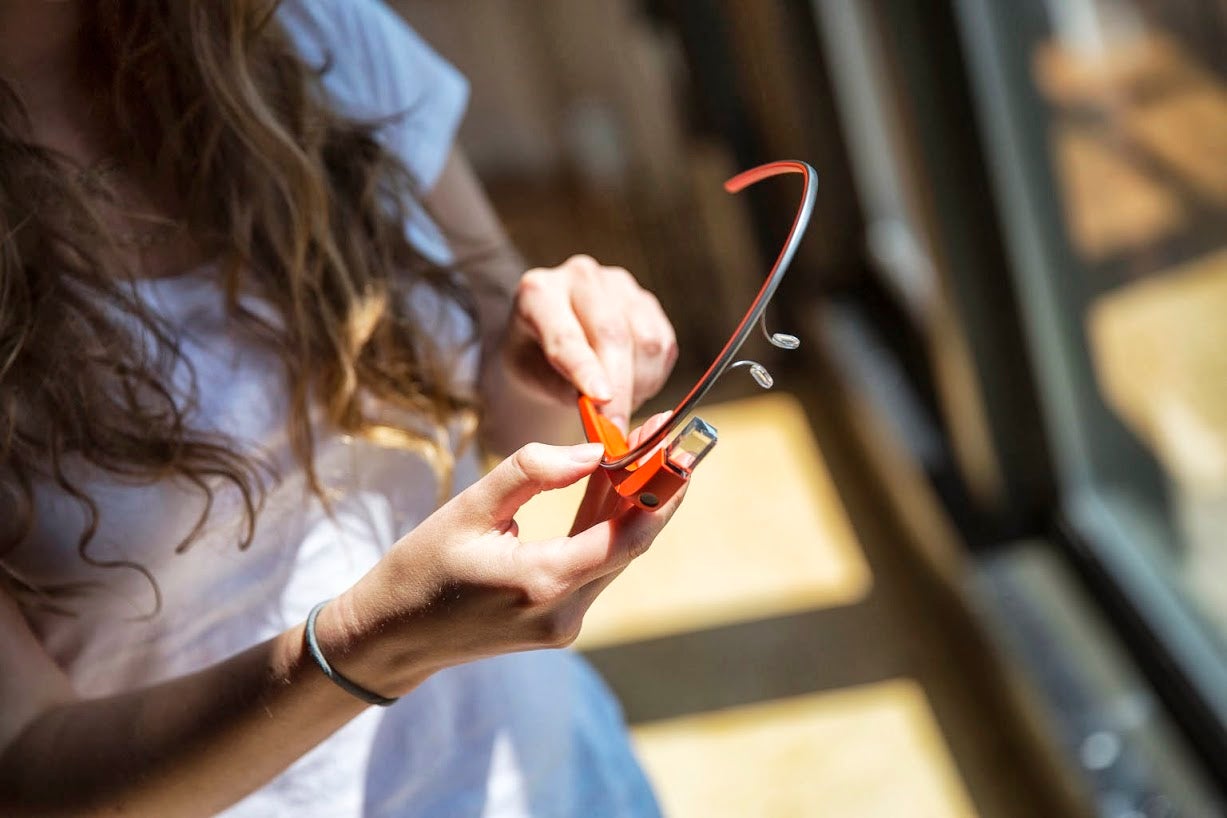Google Glass banned from US cinemas
Never mind the fact that Glass can't record more than 30 minutes of video footage without running out of battery

Your support helps us to tell the story
From reproductive rights to climate change to Big Tech, The Independent is on the ground when the story is developing. Whether it's investigating the financials of Elon Musk's pro-Trump PAC or producing our latest documentary, 'The A Word', which shines a light on the American women fighting for reproductive rights, we know how important it is to parse out the facts from the messaging.
At such a critical moment in US history, we need reporters on the ground. Your donation allows us to keep sending journalists to speak to both sides of the story.
The Independent is trusted by Americans across the entire political spectrum. And unlike many other quality news outlets, we choose not to lock Americans out of our reporting and analysis with paywalls. We believe quality journalism should be available to everyone, paid for by those who can afford it.
Your support makes all the difference.Google Glass and other ‘wearable recording devices’ have been banned from cinemas across the US after a joint decision by the Motion Picture Association of America (MPAA) and the National Association of Theater Owners (NATO).
MPAA and NATO, which respectively represent the six major Hollywood studios and some 32,000 of America’s 39,000 movie screens, said the decision was made due to the threat of piracy.
“As part of our continued efforts to ensure movies are not recorded in theaters,” said the pair in a joint statement, “we maintain a zero-tolerance policy toward using any recording device while movies are being shown. As has been our long-standing policy, all phones must be silenced and other recording devices, including wearable devices, must be turned off and put away at show time.”
Google Glass has never exactly been welcomed in US cinemas (whether or not to allow the device has been previously left to the discretion of individual branch managers) but this announcement follows a decision by UK cinemas to make the ban official.
Google might take umbrage at the move, but a little clarity might be good for consumers. In January this year a US Glass wearer was unceremoniously hauled out the middle of a film, detained and searched by members of Homeland Security because they could not tell whether or not he was recording.
However, many will see the decision by the MPAA and NATO as short-sighted and reactionary - not least because cinema pirates have been using video recording hardware far more sophisticated than Glass for years.
Glass may offer video recording from a convenient POV position, but its camera is only 5-megapixels in resolution and its battery life is depleted after 30 minutes of recording.
Join our commenting forum
Join thought-provoking conversations, follow other Independent readers and see their replies
Comments